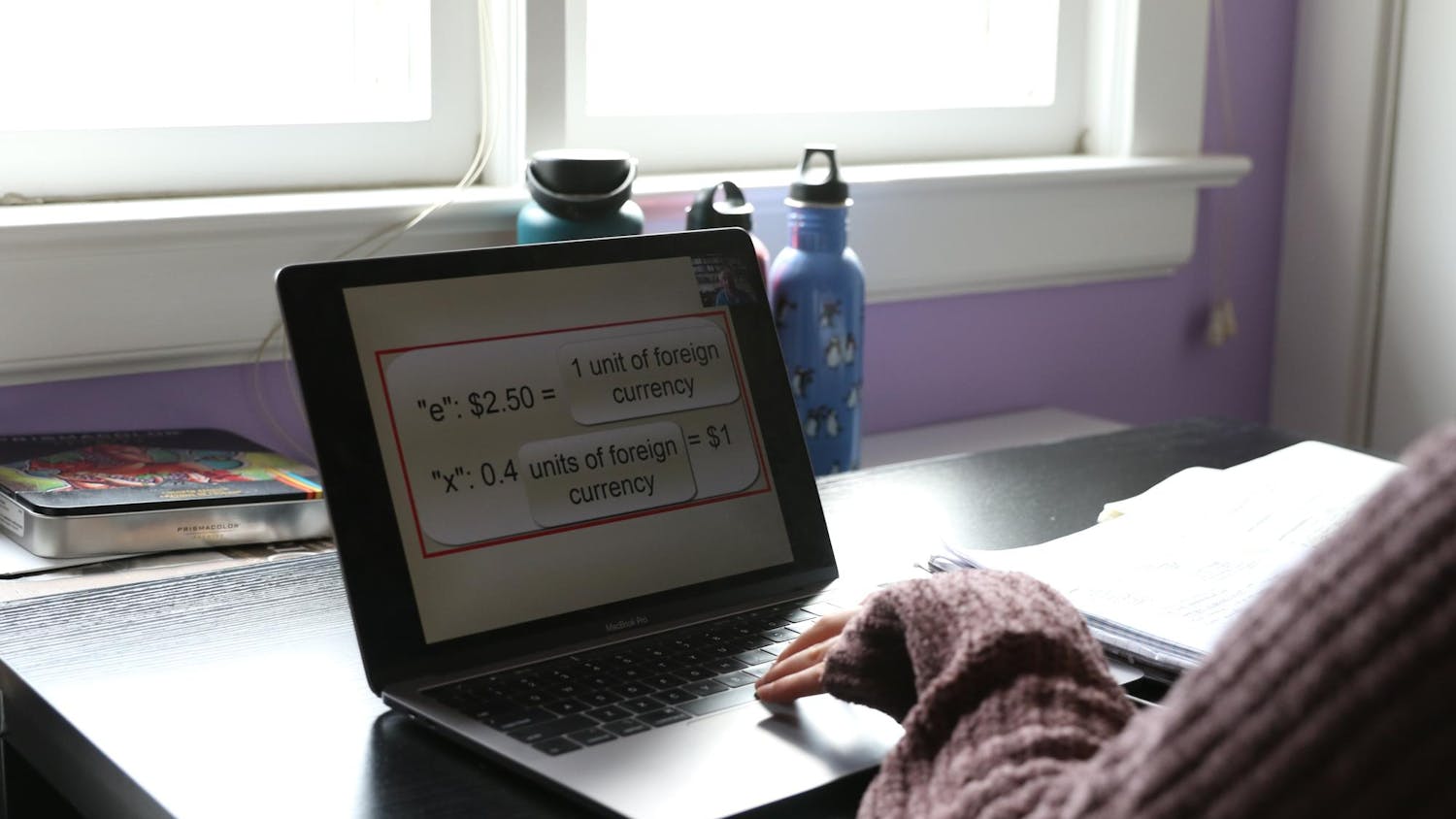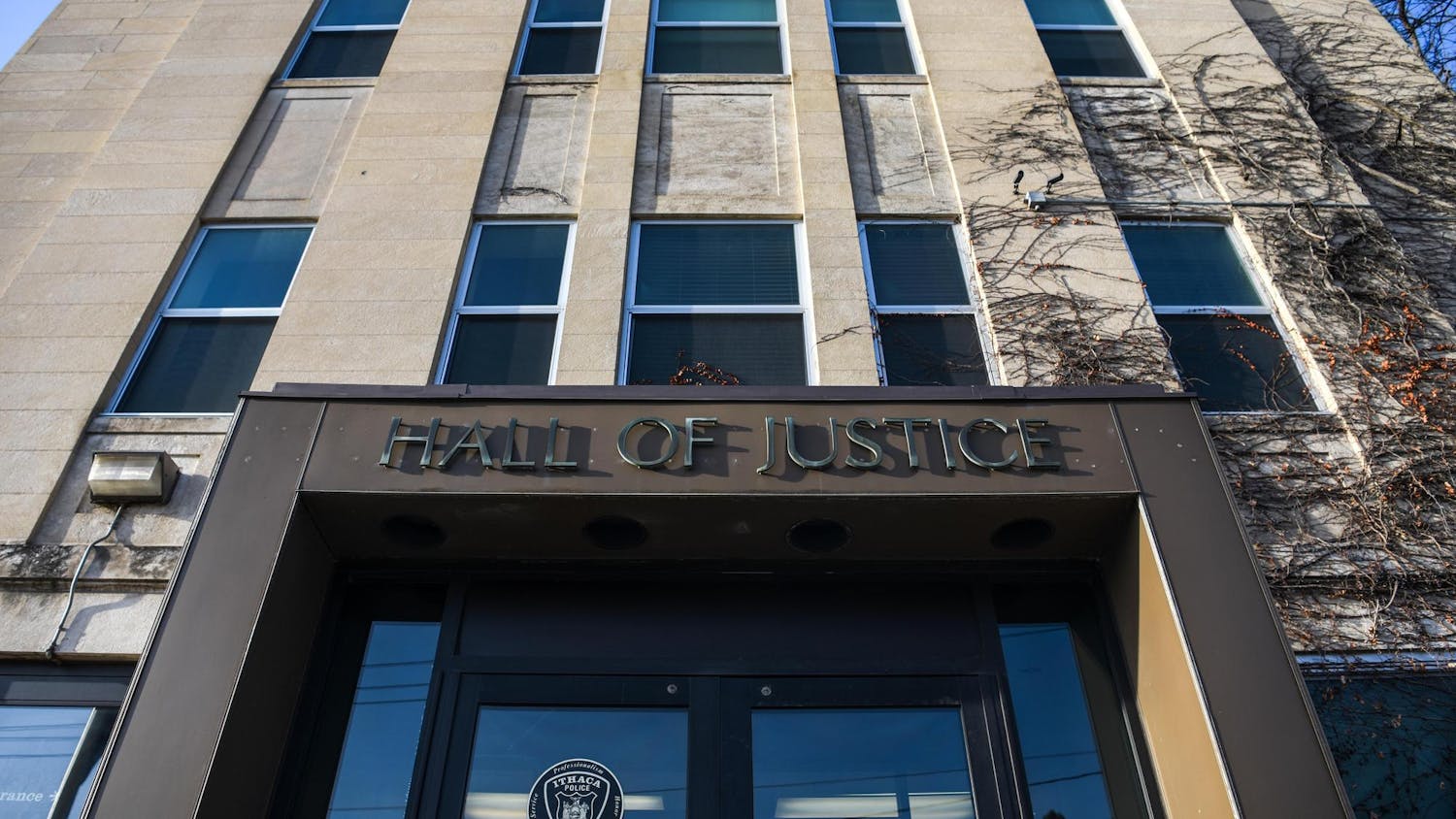Student Assembly members voted Thursday to reject Resolution 36, which would “urge” Cornell to divest from companies “profiting from the occupation of Palestine and human rights violations.” The decision to reject incorporated the opinion of the 582 students that voted for the allocation of the two “community” votes.
The vote included 13 votes no, 14 votes yes and one abstention from S.A. members, as well as the two votes allocated to community members that were awarded against the resolution. S.A. president Varun Devatha ’19 delivered the results to a hushed Memorial Room in Willard Straight Hall packed with students, many of whom were forced to sit in aisles or stand.
For the first time in recent memory, according to Devatha, the S.A. approved a motion to vote by secret ballot. According to S.A. parliamentarian Julian Kroll ’20, the official S.A. bylaws dictate that secret ballots may only be used during executive meetings.
Many students advocated against a secret ballot to maintain transparency, including Arts and Sciences Rep. Mackenzie Smith ’21 and School of Hotel Administration Rep. Brian Weintraub ’21. However, other students expressed concerns for the safety of themselves and their families should their vote be public.
Freshman representative Indigo Pavlov ’22 and College of Agriculture and Life Sciences representative Nick Matolka ’21 cited threats to their personal safety and inquiries from reporters from a “D.C. think tank” as reasons for a secret ballot.
“Today, me and a couple of other Assembly members, including our family members, were contacted by national reporters asking for our opinions about the [boycott, divest and sanction] BDS movement,” said Matolka. “The moment my family comes into play ... that crosses a line.”
The rejection of the resolution echoed circumstances from 2014 when the S.A. voted to table a similar resolution to divest from companies that “profit from the Israeli military occupation of Palestinian territories.”
Cornell undergraduate students present at the meeting were allowed to cast votes as part of the “community vote,” which decided 248-330-4 against the resolution according to Dale Barbaria ’19, S.A. vice president for finance. The official community vote could not be split. Undergraduate student ID’s and NetIDs were checked for most students to verify status, although in the absence of a student ID, only NetIDs were used, said Kroll.
Before discussion began around the resolution, representative for the College of Human Ecology and pro-divestment leader Omar Din ‘19 attempted to reclassify the resolution as a recommendation, which would remove the two votes allocated to the community.
His motion to change the status of the resolution was voted down with a clear majority by the assembly.
S.A. representatives and members of the community then discussed the resolution, with both sides delivering passionate, often emotionally fraught appeals for Assembly members to vote on their side. Each speaker was allotted two minutes.
Mahfuza Shovik ’19, representative for the College of Engineering and resolution co-sponsor opened the discussion by condemning the anti-divestment coalition. “It concerns me that there are people standing against this resolution without knowing the facts,” said Shovik. “The opposition inaccurately portrayed this resolution as an act of BDS.”
Some against the resolution opposed the characterization, arguing that SJP and other divestment supporters had repeatedly used associations with BDS to garner support, including “copying almost word-for-word” BDS resolutions from other campuses, said Smith.
Throughout the discussion, S.A. representatives repeatedly condemned the acrimony that they said had come to define the proceedings around the resolution.
“I have been extremely disappointed by the way this resolution has been handled by everyone involved,” said S.A. Vice President for External Affairs Savannah Lim ’21. “You can’t expect a student government to solve a geopolitical crisis.” Lim also alluded to allegations that divestment supporters had “harassed” S.A. Vice President of Diversity and Inclusion Cat Huang ’21, as The Sun previously reported.
Smith also alleged that she, along with other S.A. members, had received multiple “threats, insults and attacks” from resolution supporters.
In an statement to The Sun, SJP said that the divestment resolution was “in no way at targeted at individuals” and that the group “condemns all political attacks targeted at individual students, from both supporters and opponents of divestment.”
Despite the contention, supporters on both sides of the issue expressed optimism and a willingness to continue the conversation beyond the resolution.
“I was a little disappointed that people didn’t properly discuss the resolution, but I think overall the meeting went well,” said SJP supporter Samir Salih ’19. “I’m looking forward to conversations with the other side.”
President of Cornell Hillel Jillian Shapiro ’20 expressed similar sentiments, telling The Sun in a written statement that she looked forward to “safer and more productive ways” to continue dialogue.
After the S.A. meeting, both Huang and Barbaria emphasized that although the vote was over, there is still further work to be done.
“The decision to reject the resolution does not mean that there are no actions that students or the Student Assembly can pursue,” Barbaria told The Sun in a written statement. “We must work to ensure that this campus is one where all students feel welcome and where all students feel safe voicing their views and ideas.”
The resolution — and the larger geopolitical issue — had been discussed at almost every S.A. meeting since February Break, including a teach-in by both supporters and opponents of the resolution and a public forum to hear community members’ input. Controversy over the issue peaked at the S.A. meeting on March 22, in which Din received what he called “Islamophobic” comments following allegations that members of the pro-divestment coalition had tried to force Resolution 36 through an S.A. committee by an email vote.
In February, President Pollack wrote a letter to Students for Justice in Palestine stating her opposition to the movement, saying that it unfairly singled out Israel. Pollack said in her response that the movement “frequently conflates the policies of the Israeli government with the very right of Israel to exist as a nation.”
In 2006, Cornell divested from companies in Sudan after the Darfur genocide.
Jill Crosby ’21, Sean O’Connell ’21 and Olivia Weinberg ’22 contributed reporting to this article.
This post has been updated.
Correction: A previous version of this article said that pro-divestment supporters tried to force the resolution through S.A., when in fact it was an S.A. committee. The article has been updated to correct this error.

Student Assembly Votes Against Resolution on Divestment Movement
Reading time: about 6 minutes
S.A. President Varun Devatha reads aloud the results of the vote.
Students display posters in support of Palestine.
Mahfuza Shovik, co-sponsor of Resolution 36, speaks in front of the Assembly.
A woman holds a sign stating her interpretation of the BDS movement.
Read More










